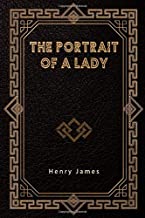O'Brian, Patrick. 1973. H.M.S. Surprise. New York & London: W.W. Norton & Company.
Review by Michael Beach
This book is the third in the series written by Patrick O’Brian centered on the British naval officer Jack Aubrey and his friend and ship’s doctor, Stephen Maturin. The series is set during the Napoleonic Wars when British and French warships often battled. My first introduction to this series was through the moving Master and Commander starring Russell Crowe. A work friend of mine gifted me the first two novels and I decided to continue the series.
As one might expect, this story is a continuation from the other two which I have already written reviews on here https://bhaven.org/reviews/master-commander
and here https://bhaven.org/reviews/post-captain.
This point of the longer story begins with Aubrey temporarily in command of HMS Lively. He is assigned to escort duty. The crew is less practiced than he would have hoped, but he manages to use them to sneak ashore to a Spanish fort on the island of Minorca and rescue Stephen who is imprisoned there. They go on to engage French ships with victorious effect. The permanent commander returns, and Aubrey’s career is left adrift.
The middle of the book returns focus to his romance with Sophie Williams to whom he proposes marriage. She accepts, but her widowed mother is not supportive since he has a fair amount of debt and an uncertain naval future. Jack has his own internal conflicts on this problem and is always finding ways to dodge creditors. Jack’s accomplice Stephen has his own love entanglement in an on-again off-again affair with a widow Diana Villiers who is also friends with Sophie.
Eventually the book puts Jack back in charge of a ship HMS Surprise. It turns out to be the ship he had served on many years before as a young midshipman. He fixes it up and sails for India on assignment. There are a number of close calls with ocean storms, doldrums, sickness, and times of low provisions for the crew. The result is a battered ship and crew when they get to India. Jack not only fixes the ship and provisions it, but in the process makes many improvements to the hull and masts. While in India, Stephen meets up with his love interest, Diana Villiers. They have some intrigue and adventures in several parts of India. They agree to meet in Madeira on their way home after the ship’s tour there. Diana also agrees to encourage Sophie to join Jack there. Before heading home to England, there is a substantial battle between the Surprise along with some less experienced warships manned by sailors from India. They are escorting a large convoy of merchant ships and come under attack by a number of French navy ships. A battle ensues and the British are victorious. Jack is the main hero and as a result receives a sizeable reward, enough to pay off his creditors and marry Sophie.
After another batch of repairs to the Surprise resulting from the battle, they sail home stopping at Madeira as planned. Unfortunately for Stephen, his relationship with Diana is off-again. She left word that she has married a wealthy merchant and they have gone to America. Jack initially has no word from Sophie, but at last they come together and resume their romance. Sophie is sure her mother will accept Jack after his turn of fortune.
As with the other O’Brian books, the writing is very engaging and he clearly knows his nautical and naval language. The details can be a bit hard to follow during the heated battles, even for someone like me with some experience sailing, but the reader is not lost. This book had less emphasis on the romance than the second book had and more on battles and expeditions into India jungles. From that perspective the balance was better from my point of view.









 RSS Feed
RSS Feed